Physics A Level
Head of Department Mr C R Butler
Exam board Edexcel
Qualification name Physics A
Qualification codes GCE A Level: 9PH0
What you will study
Lower Sixth concepts
- Working as a physicist, including key practical skills, the use of SI units, and estimation techniques.
- Mechanics, including Newton’s laws, linear and projectile motion, turning moments, energy concepts, and linear momentum.
- Electric circuits, including atomic structure, electrical quantities, the resistivity of materials including semiconductors, and complete circuits.
- Materials, including upthrust, fluid mechanics and solid material properties including the Young Modulus.
- Waves and the particle nature of light, including basic wave properties and behaviour, optics, and quantum physics (covering the photoelectric effect and wave-particle duality).
Upper Sixth concepts
- Further mechanics, including momentum in two dimensions and circular motion.
- Electric and magnetic fields, including radial and uniform electric fields, capacitors, and electromagnetism.
- Nuclear and particle physics, including the development of atomic models, particle accelerators and detectors, and the standard model of particle physics (the ‘particle zoo’).
- Thermodynamics, including the energy and temperature concepts, black-body radiation, the molecular kinetic theory, and ideal gas behaviour.
- Nuclear radiation, including radioactive decay, binding energy, and nuclear reactions.
- Gravitational fields, including Newton’s universal law of gravitation, gravitational potential, and a comparison of gravitational and electric fields.
- Space, including stellar classification, the life cycle of stars, how to measure the Universe, the fate of the Universe, and dark matter and energy.
- Oscillations, including simple harmonic motion, resonance, and damping.
How you will be assessed
Paper 1 – Advanced Physics I: 1 hour 45 minute written paper (90 marks – 30% of A Level)
Paper 1 covers topics 1-3 and 6-8 and includes a mixture of multiple-choice, short open, open-response, calculations and extended writing questions that cover both familiar and unfamiliar concepts.
Paper 2 – Advanced Physics II: 1 hour 45 minute written paper (90 marks – 30% of A Level)
Paper 2 covers topics 1, 4-5, and 9-13 and includes a mixture of multiple-choice, short open, open-response, calculations and extended writing questions that cover both familiar and unfamiliar concepts.
Paper 3 – General and Practical Principles in Physics: 2 hour 30 minute written paper (120 marks – 40% of A Level)
Paper 3 covers all topics and will include synoptic questions that may draw on two or more different topics. and includes a mixture of short open, open-response, calculations and extended writing questions that cover both familiar and unfamiliar concepts. Some questions will assess conceptual and theoretical understanding of experimental methods and will draw on your experiences of the core practicals.
Why choose Physics?
Physics is the foundational science and is crucial in our technology-based society. From microelectronics to space exploration, from the study of the quantum to the cosmology of the Big Bang, Physics is there to aid our understanding, underpin our technology, and satisfy our curiosity. The world energy crisis means that alternative energy generation and nuclear fusion as a power source are moving up the global agenda. Dark matter, dark energy and other aspects of cosmology are a fascinating area of development, and we can expect exciting breakthroughs in the coming decade. It is the physicists of our world that solve the problems of today and ask the questions of the future. This is an exciting time to be studying Physics.
Course requirements
Students will need a good grounding in physical science and mathematics which equates to a minimum grade 6 (ideally 7+) in both Physics (or Combined Science) and Mathematics at GCSE.
Related subjects at Sixth Form
Physics can be combined with any other A Levels offered at Barnard Castle School. Students commonly combine it with other sciences, Mathematics, Design Technology, Modern Foreign Languages and Economics. That said, the subject is closely linked to the Mechanics part of the A-Level Mathematics course, and the atomic structure topic of the Chemistry syllabus, allowing Sixth Form students who combine these to gain a holistic understanding of scientific and mathematical theory in these areas. While Physics and Mathematics (or Core Maths) can be a helpful combination due to the overlap of content and of skills, it is not a requirement; a good grounding at GCSE Mathematics is sufficient and many successful students study Physics without A Level Mathematics.
Where could this lead?
Physics graduates are highly regarded by employers from across the industrial, commercial, and academic spectrum. As well as their knowledge of physical principles, physicists are analytical thinkers, problem solvers, and clear communicators, and it is these skills that are attractive to employers. Some physicists continue into research and push the boundaries of human knowledge and understanding, but many others pursue careers in finance, law, business, education, technology, engineering, and many other sectors.
Further important information
We follow the concept-led approach to the Edexcel A Level course but at Barney we devote much of the course to developing students’ practical and investigative skills. We supplement the standard set of 16 core practicals with 14 additional practicals and investigations as well as countless other experimental activities. The staff team includes well-qualified Physicists with wide-ranging complementary interests, as well as experience teaching other Physics syllabi, including the Pre-U course.

